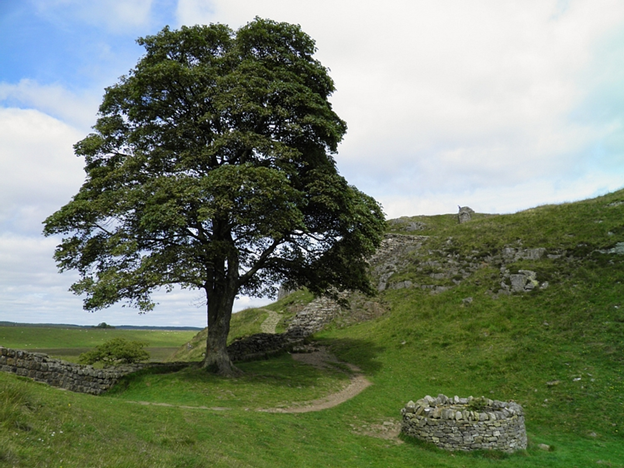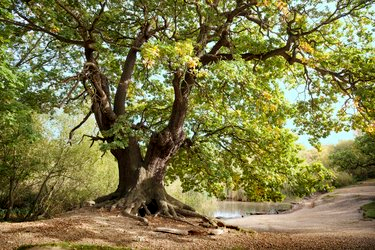July, 2023 African Proverb of the MonthA tree looks beautiful when it is far, but seen near it carries a lot of branchesLuba Katanga (DRC) Proverb
 |
Buya kwa muci palampe pabwipi ke nsala. (Luba Katanga) Mti huonekana mzuri ukiwa mbali, lakini ukiuona karibu hubeba matawi mengi. (Swahili) Vue de loin, l’arbre est beau, mais vue de près, il présente qu’un assemblage des branches. (French) A tree looks beautiful when it is far, but seen near it carries a lot of branches. (English) |
Luba Katanga( DRC,) Proverb
Background, Meaning and Everyday Use
Luba-Katanga, also known as Luba-Shaba and Kiluba (Luba-Katanga: Kiluba), is one of the two major Bantu languages spoken in the Democratic Republic of the Congo (DRC) called Luba. See Luba-Kasai. It is spoken mostly in the south-east area of the country by the Luba people. Kiluba is spoken in the area around Kabongo, Kamina, Luena, Lubudi, Malemba Nkulu, Mulongo, Kabalo and Kaniama, mostly in Katanga. Some 500 years ago or more, the Luba Kasai left Katanga and settled in the Kasai; since then, Luba Kasai (Chiluba) has evolved until it is no longer mutually intelligible with Luba Katanga.
The Luba people or Baluba are an ethno-linguistic group indigenous to the south-central region of the Democratic Republic of Congo. The majority of them live in this country, residing mainly in Katanga, Kasai and Maniema. The Baluba Ethnic Group consists of many sub-groups or clans who speak various dialects of Luba (e.g. Kiluba Thiluba) and other languages, such as Swahili.
The Baluba developed a society and culture by about the 400s CE, later developing a well-organized community in the Upemba depression known as the Baluba in Katanga confederation. Luba society consisted of miners, smiths, woodworkers, potters, crafters and people of various other professions. Their success and wealth grew greatly over time, but this also caused their gradual decline to marauding bands of slavers, robbers, and terrorists from among Portuguese and Omani led or influenced invasions.
The Luba people tended to cluster in single street villages, with homes with rectangular thatched roofs on both sides of the street whose lineage is usually related. The homes were in the savanna and forests. They hunted, fished in abundant waters near them, gathered food such as fruits from the wild and had mastered agriculture. In our contemporary era, they grow cassava, corn and raise livestock. Some Luba carve wood and produce artist handicrafts.
The meaning of this Luba Katanga Proverb is that we love and respect each other when we live separately, but once we stay together we start shouting and showing disrespect toward each other. Finally this leads to a negative separation.
Biblical Parallels
Genesis 13:10: “Lot looked around and saw that the whole plain of the Jordan toward Zoar was well watered, like the garden of the Lord, like the land of Egypt. This was before the Lord destroyed Sodom and Gomorrah.”
1 Peter 2:17: “Respect and honor should be shown to everyone” according to the Bible.
Matthew 6:24: “No person can serve two masters: for either he or she will hate the one, and love the other; or else he or she will hold fast to the one, and despise the other.”
Contemporary Use And Religious Application

Can two walk together, except they agree God demanded of apostate Israel. The believer and the unbeliever are at odds over almost everything. The believer declares that in the beginning God created the heaven and the earth; the unbeliever says the universe just happened, that it was a fortuitous concourse of atoms.
Separation is to live a different kind of life in the world. “That you may be blameless and harmless, the sons of God, without rebuke, in the midst of a crooked and perverse nation, among whom you shine as lights in the world.”
Sometimes Christians feel that they must not do a certain thing or go to a certain place because another Christian regards it as wrong. We need to see that it is God to whom we are responsible in these matters. The Lord calls us to separate from all that is displeasing to Him, and to dedicate ourselves to Him so that we are available for His service. If we have a problem about this, our problem is not with the preacher, or the church, or our Christian friend, but with the
Texts and photos by:
Elias Bushiri Élie
Nairobi, Kenya
+254 7414 97556 (WhatsApp)
+254 7359 73276
ebushiri@gmail.com (Skype)
e.bushiri@yahoo.com
Eli@s B. Élie (Facebook)
African Proverbs, Sayings and Stories is proudly powered by WordPress
